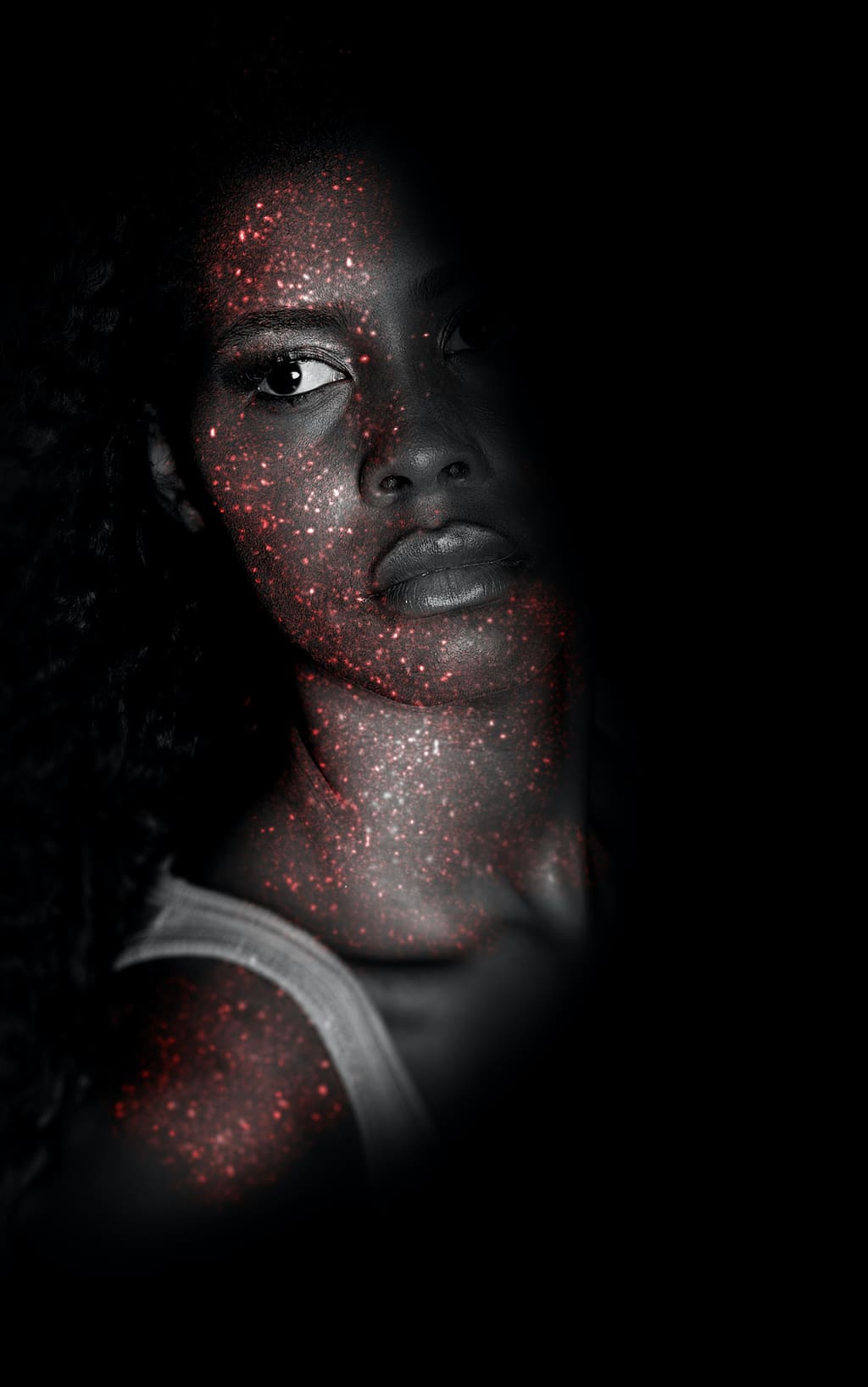From 'killing it', to wanting to quit - every single month.
Help! I think I have PMDD!

Are there some days when you are killing it at life, smashing your goals, living the dream, everything goes smoothly.... and then a couple of weeks later, for no apparent reason it gets really dark. Doing the simplest of tasks feels like you are pushing boulders up a steep hill, people irritate you to the point of breaking, you act 'out of character' - saying and doing things that have you feeling embarrassed and ashamed. You want to run away from life, hide in your bedroom, quit your job, leave your partner, and then.... you start to bleed.
With that menstrual bleeding comes a sense of relief, a cleansing of the anxiety and tension that has plagued you for days. It washes away the negative emotions and calm returns again. You realise you're smiling again and enjoying your life. You forget. Until it happens again the next month...
What is Premenstrual Dysphoric Disorder?
PMDD stands for Premenstrual Dysphoric Disorder. It is thought to affect around 5.5% of women, and other individuals assigned female at birth, during their reproductive years.
PMDD is a hormone-based mood disorder characterized by an extreme sensitivity to the hormonal fluctuations that occur throughout the luteal phase of the menstrual cycle. (Luteal phase is between ovulation and around the time you bleed - generally, this is 2 weeks per month with a standard 28-day cycle).
Not a hormone imbalance
With PMDD, your hormones are 'normal' and doing what they should, however, your brain has an abnormal negative reaction to the fluctuations that occur between ovulation and around the time of your period. So, PMDD is a hormone sensitivity rather than an imbalance - hence why it cannot be detected (currently) by blood tests. However, a full female panel blood test should be carried out to rule out an imbalance or thyroid issues, which can mimic PMDD.
Genetic
Recent research suggests that PMDD is a genetic condition and that people with PMDD have an altered response to sex hormones at a cellular level.
Not PMS
PMDD is not the same as PMS (premenstrual syndrome) or PMT (premenstrual tension) which the majority of people with periods will experience. PMDD is far more severe and impacts on a person's ability to function, carry out daily tasks, work and maintain relationships. PMDD is a spectrum and can be mild, moderate or severe.
Dysphoria
So what is 'Dysphoria'? - If you think about the word 'euphoria', which means a state of intense happiness and self-confidence. Well, its the opposite of that! Think dissatisfaction, anxiety, restlessness, depression and self-loathing.
Help! I think I have PMDD!
If you find yourself reading this, it's likely you (or someone you care about) might be realising that there is a possibility you/they have PMDD. You're probably feeling a bit overwhelmed and not sure where to start. Never fear! You are not alone. We have all been there ourselves and we're here to give you some tips about what to do next.
Here are a few good places to start:
1. Read and Learn
Read information from reputable sources. Learn exactly what PMDD is, and what you can do to help yourself. Take the time to print everything you can, sit, get the highlighting pens out and LEARN. This is your best preparation for self-advocacy. We recommend reading everything there is on offer on the International Association for Premenstrual Disorders (IAPMD) website. There have been some good books written about PMDD too. Click here to read the 'Beginner's Guide to PMDD' that we did for 'The Mighty'.
2. Get Support
PMDD can be scary and it can be really isolating. Peer support is something we have found extremely valuable. Having people who understand what you are going through from experience is priceless. There are numerous closed support groups on Facebook - ones for patients, parents, partners, those with religious beliefs, non-binary and trans sufferers etc. Check out our 'support' page for links and information. Also, IAPMD offer free, confidential one-to-one peer support, which we would highly recommend.
3. Track
If you think you have PMDD, it is really important that you start to track your cycle. This means getting a period tracking app (such as Me v PMDD) or a print out version and you need to start tracking your symptoms on a daily basis. You also need to make note of the severity of the symptoms using a scale and note any impact they are having on your work/school/home life.
4. Find the right doctor
Sadly, training on women's health is way behind the times in most countries. PMDD is still a relatively new diagnosis and so many doctors are not aware it even exists, let alone trained in it's management. But as we know - it exists and it is very real! First line treatments for PMDD can be prescribed at GP level. Further treatments are done at specialist level. IAPMD have an interactive map where patients can recommend providers whom they have seen, who have good knowledge of PMDD and how to treat it. No one listed near you? Don't worry - there is also a guide of how to find someone closer to home.
5. Advocate
We wish we didn't have to say this - but prepare to advocate for yourself and for your treatment. It is a common occurrence for patients to be treated by doctors who have limited to no knowledge of treating PMDD. This is why it is SO important to read and learn evidence-based research and go into appointments armed with treatment plans printed out and your tracking information. If you do not feel strong enough to advocate for yourself, take a trusted friend or family member with you. If you feel that you are not being taken seriously, get a second opinion and/or make a complaint.
6. Keep Going!
PMDD is tough - really tough. It can be relentless, confusing and exhausting. Keep on keeping on. It can get better, it really can. There is a whole global support network of people out there who will listen, support you, share their experiences and understand. Check out #pmddpeeps on social media to find others!
You’ve got this!
About the Creator
Vicious Cycle
We are a grassroots patient-led project passionate about raising awareness of Premenstrual Dysphoric Disorder and improving the standards of care for people living with this hormone-based mood disorder.






Comments
There are no comments for this story
Be the first to respond and start the conversation.